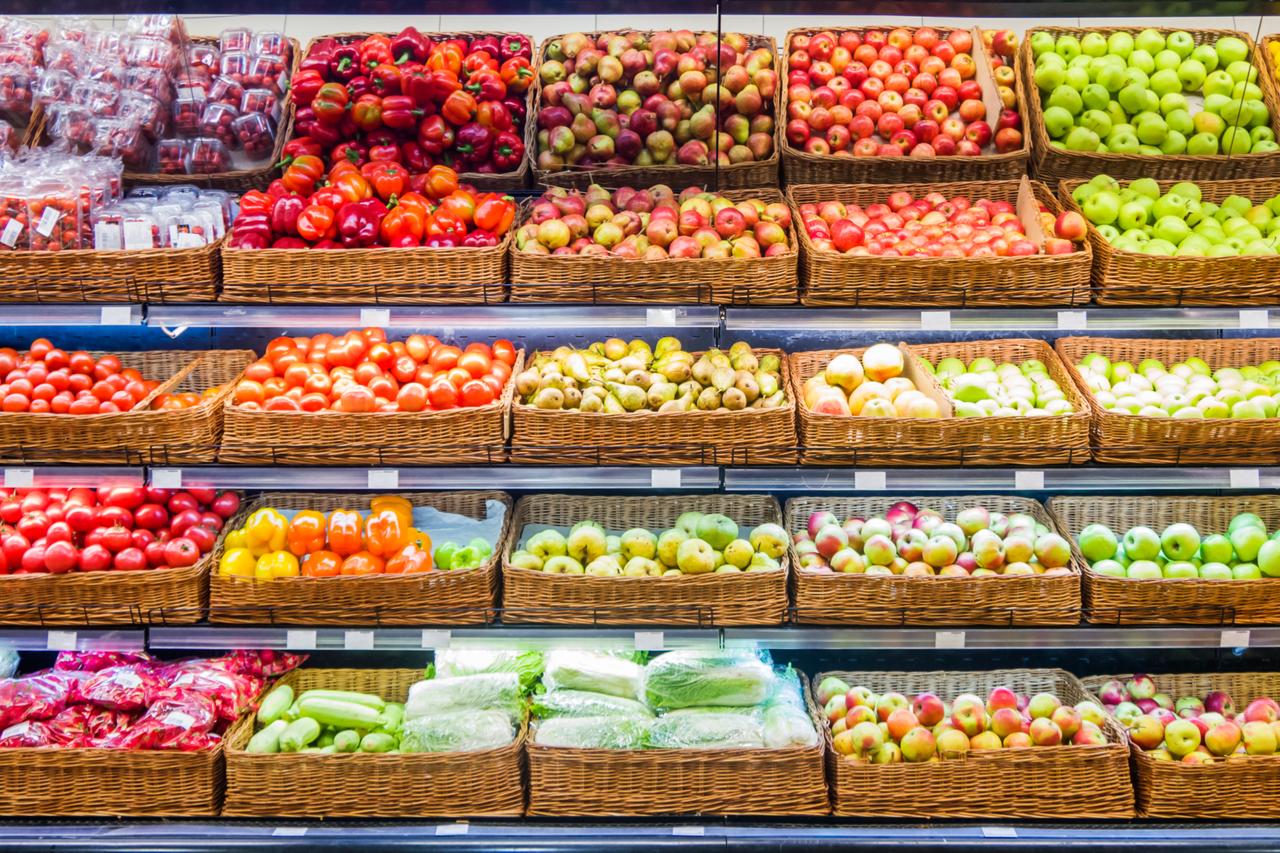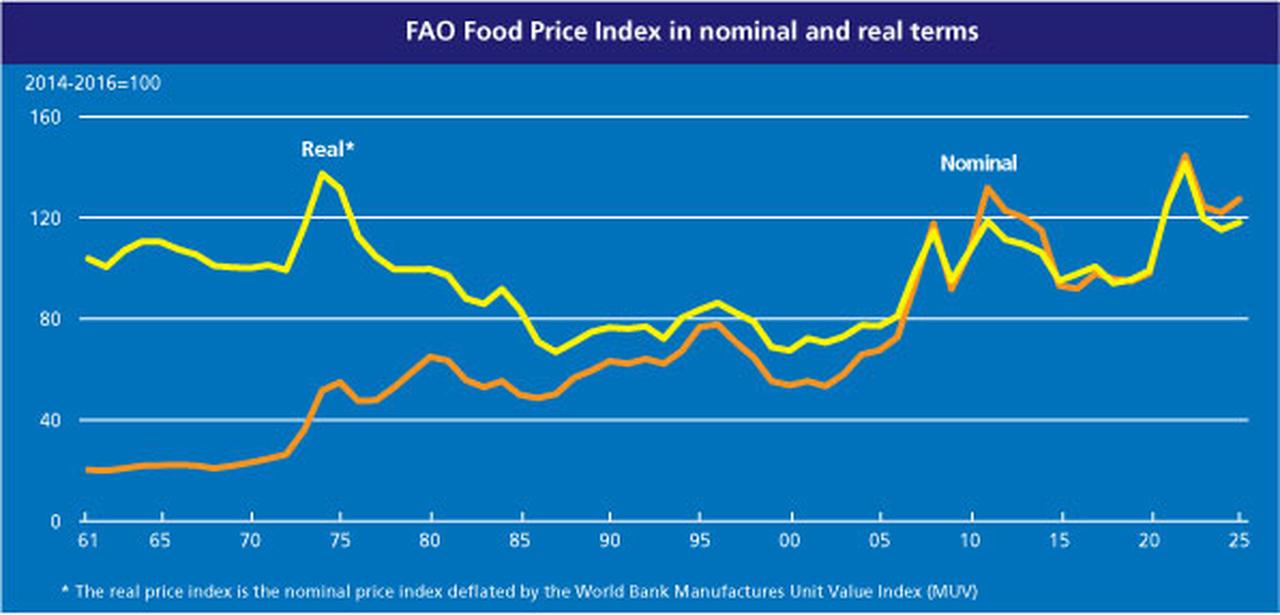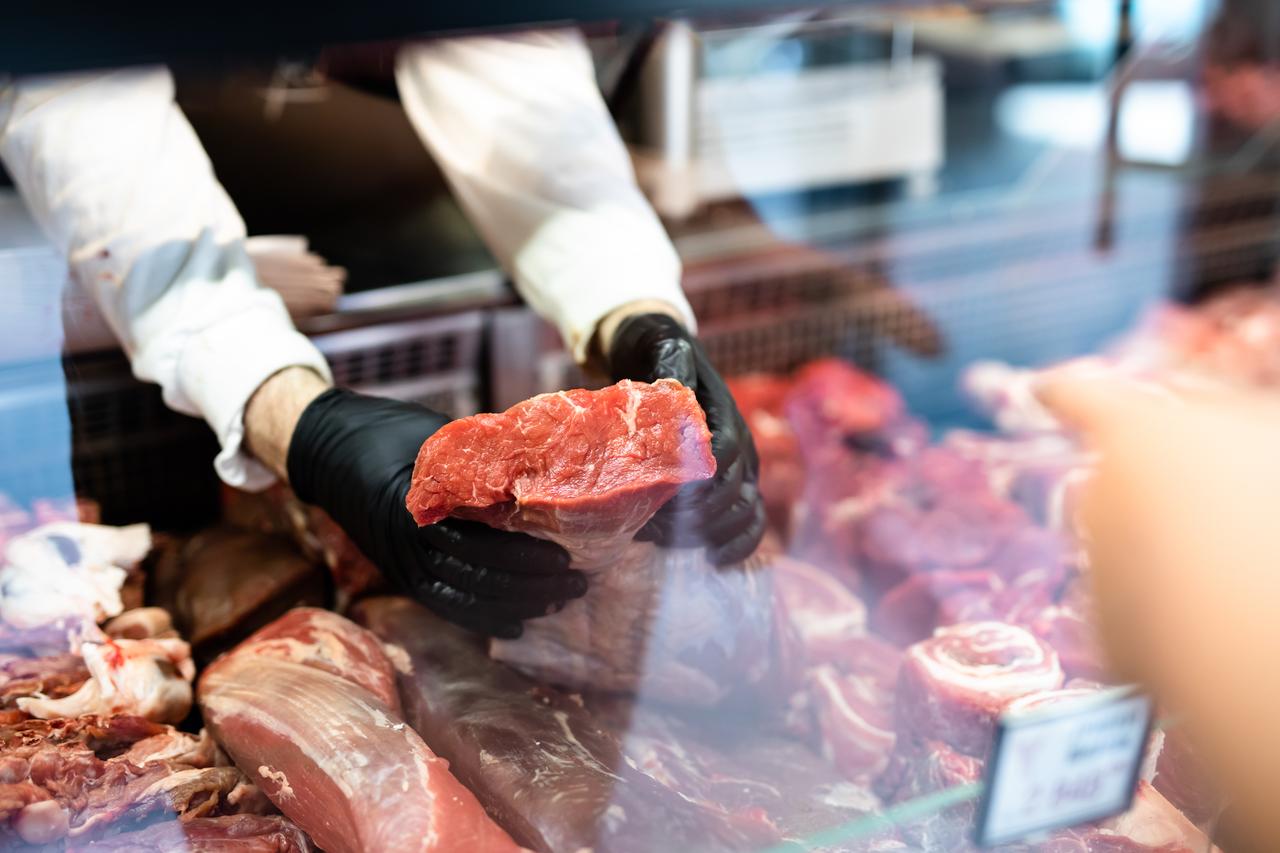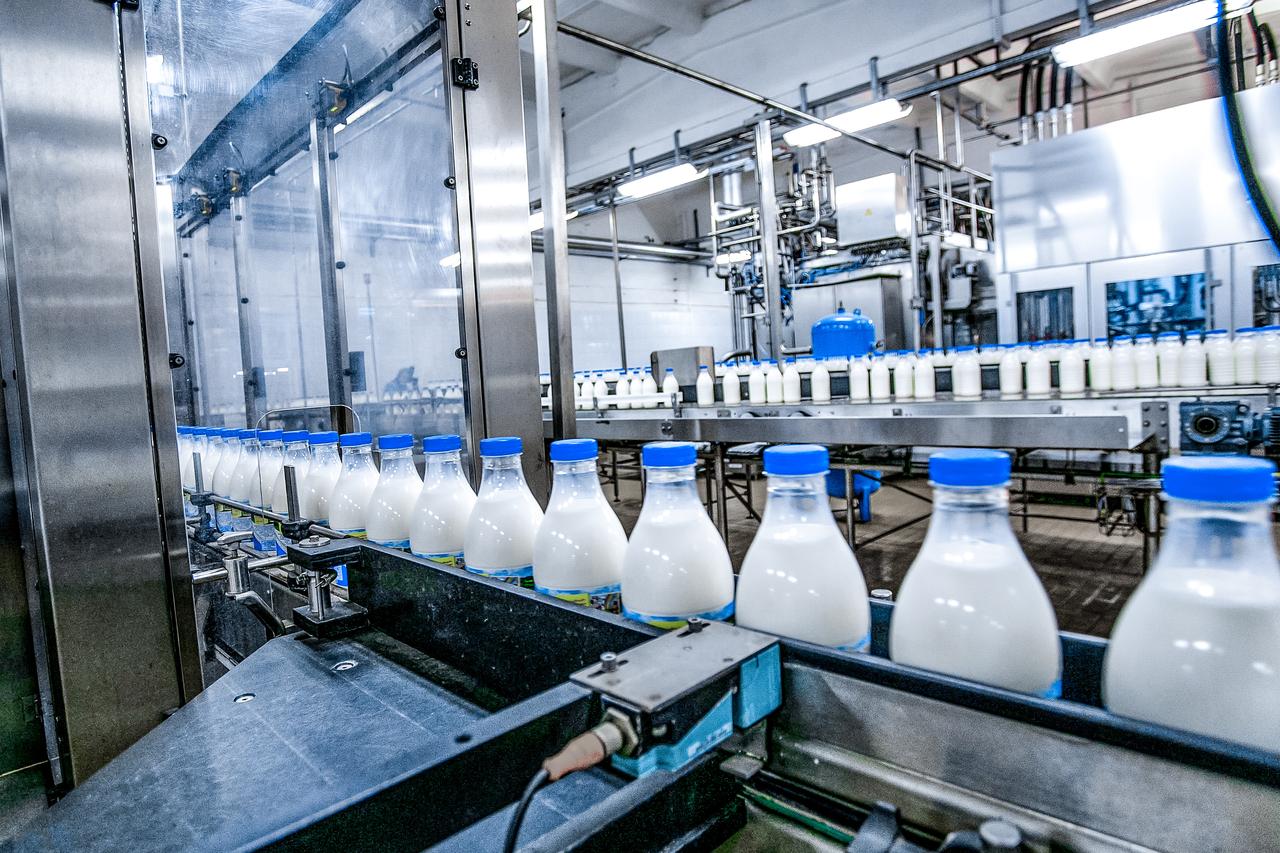
Global food commodity prices reached their highest level in more than two years in July 2025, the United Nations Food and Agriculture Organization (FAO) reported on Friday.
The FAO Food Price Index, which monitors monthly changes in international prices for a basket of commonly traded food commodities, rose by 1.6% compared to June, reaching 130.1 points, marking the index’s highest level since February 2023.
The FAO Food Price Index is a key barometer of global food market trends, closely monitored by policymakers and industry stakeholders worldwide.

While prices have surged recently, the index remains 18.8% below its peak recorded in March 2022, shortly after the onset of Russia’s full-scale invasion of Ukraine. However, July's level was still 7.6% higher than the same period a year earlier.
The overall index increase was primarily driven by rising prices in the meat and vegetable oil sectors, with the FAO Meat Price Index climbing 1.2% in July to a new record of 127.3 points. Strong import demand from countries such as China and the United States was a key factor behind higher beef and mutton prices, according to the FAO.
The Vegetable Oil Price Index climbed 7.1% from the previous month to 166.8 points, marking its highest level in three years.
Palm oil rose on the back of strong global demand and improved price competitiveness. Sunflower oil also registered gains amid declining export supplies from the Black Sea region. By contrast, rapeseed oil prices fell, impacted by a lack of new crop supply in Europe.

The Dairy Price Index edged down by 0.1% to 155.3 points, declining for the first time since April 2024. According to the FAO, the drop reflected weaker prices for butter and milk powders amid ample export supply and sluggish import demand, especially from Asia.
However, cheese prices continued to rise, supported by firm demand in Asian and Near Eastern markets and reduced export availability within the European Union.
The Cereal Price Index also declined by 0.8% to 106.5 points, while the Sugar Price Index dipped by 0.2% to 103.3 points during the month.

Food prices in Türkiye remained flat in July with a slight 0.07% increase from the previous month.
However, annual food inflation remained at 27.95%, contributing to the headline inflation, which dropped to 33.52%, by 6.94 percentage points, according to the official figures.